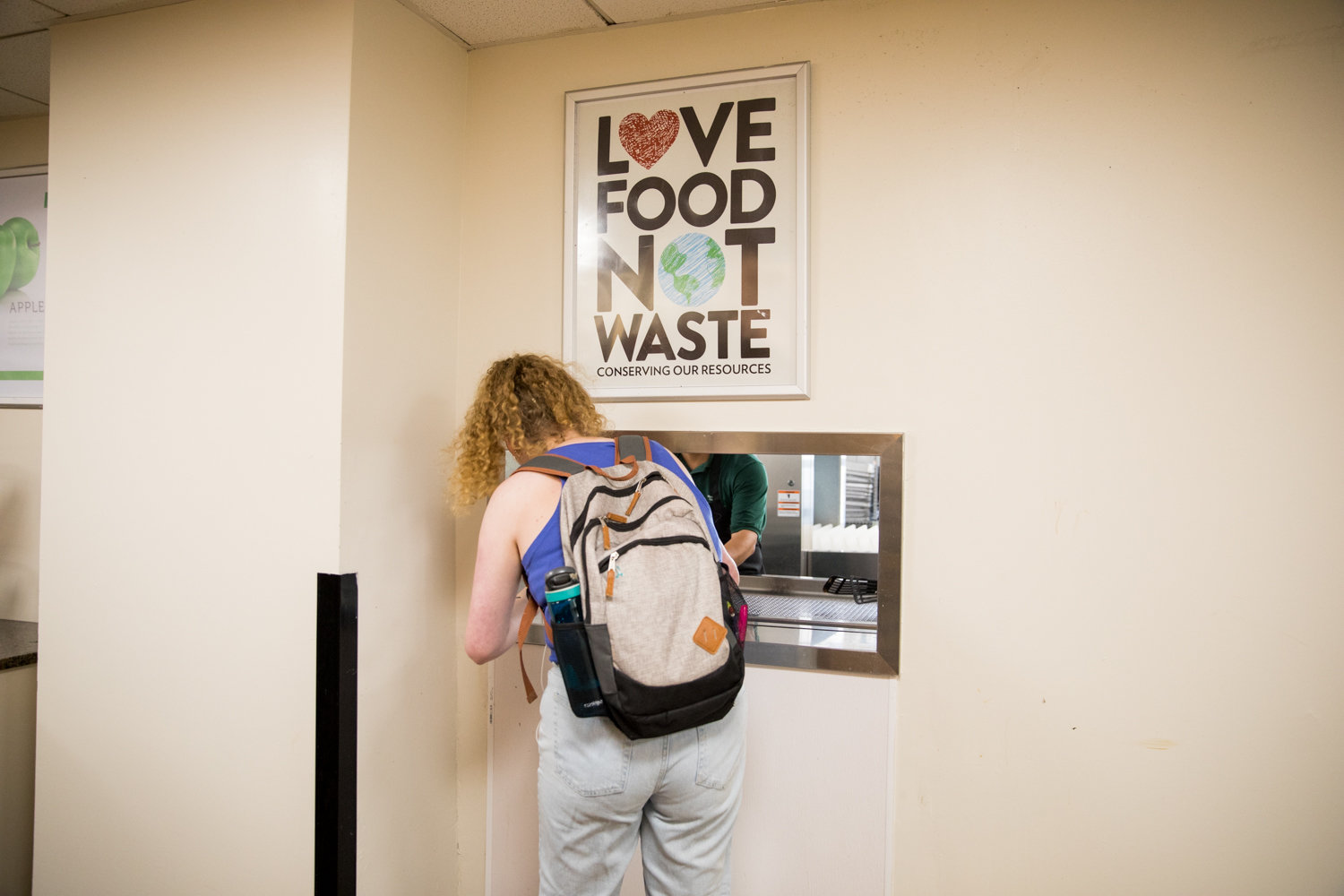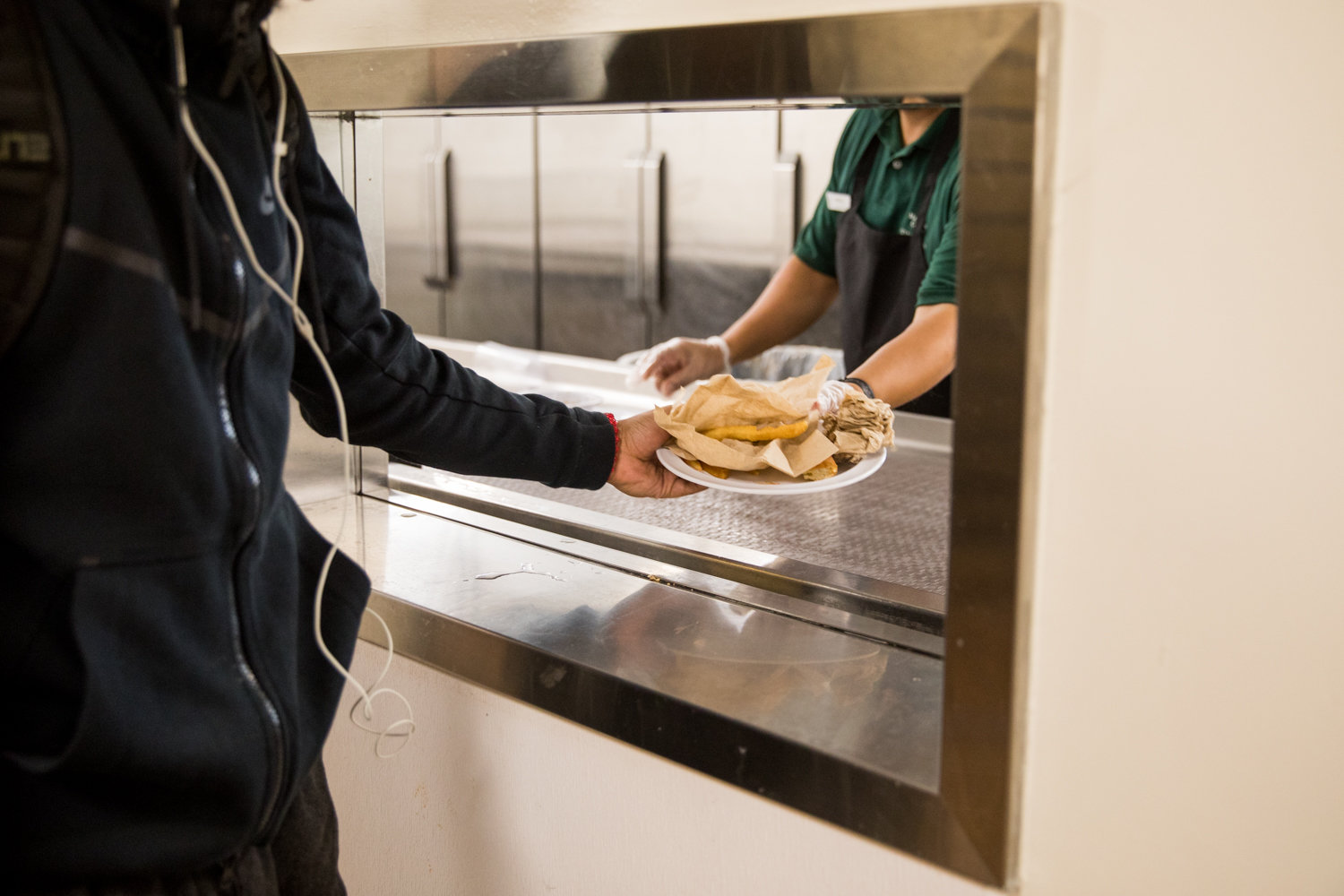Will eating at college be more akin to prison fare?
The resurgence of the Black Lives Matter movement has seemingly created gaps between various institutions and law enforcement, whether justified or not. Schools are ending their relationships with local police departments amid calls to cut budgets. And mass incarceration is facing renewed criticism for its role in racial injustice.
While the country’s prison population is currently the largest it’s ever been — with as many as one in every 100 American adults behind bars — it’s still seemingly an issue, which disproportionately targets Black communities. As many as a third of Black men can expect to be incarcerated at some point in their lives, according to the NAACP, compared to 1-in-6 Latino men and 1-in-17 white men.
And while mass incarceration might not be a predominant issue here at home, it could feel like it. One giant in the prison industry is making its way to the neighborhood, albeit not without a fight.
Manhattan College will depend on Aramark Corp., for its dining needs beginning this fall. The Philadelphia-based company will replace both Gourmet Dining and Sodexo, beginning first with managing dining and non-residential custodial services on campus. Eventually, its responsibilities will also include facilities, energy management and residential custodial services.
The company maintains a large roster of clients employing more than 200,000 people and earning billions each year. But Aramark is probably more commonly known for its contracts providing similar services to prisons.
And that’s proven to be unpopular among students who took time to research the company over the summer. As one of the largest food providers to American prisons, Aramark also is entrenched in various other controversies when it comes to employees and the inmate population of those prisons.
“Aramark is known to be (a) union buster,” said Brandon Martinez, a senior communications major at the school. “When Aramark takes over, it’s only a matter of time until they try to bust the Manhattan College physical plant union.”
Manhattan College’s physical plant and residence life housekeeping employees are members of the Office and Professional Employees International Union, with Local 153 serving the tri-state area.
In an email announcing the deal earlier this month, Manhattan president Brennan O’Donnell reassured students — and union members — Aramark will recognize unionized physical plant and housekeeping employees, ensuring they’ll retain certain benefits they’ve acquired in past collective bargaining, like free tuition.
Aramark is no stranger to the controversy surrounding the company’s name. In fact, the company website has an entire page — titled “Get the Facts” — addressing those controversies and clarifying the role it plays in prisons.
“While we understand and respect the passionate debate around our nation’s prison system and its disproportionate impact on Black and other non-white populations, we disagree with how Aramark is being characterized and cast as part of the problem,” according to the website. “We are actually part of the solution with a strong commitment to rehabilitating incarcerated individuals so they can transition back to their communities.”
The page lists several of these rehabilitation efforts, including providing vocational training, scholarships and trust accounts for inmates — efforts Aramark claims reduce chances inmates will return to prison by at least 30 percent.
Martinez, introduced a resolution in Manhattan College’s student government calling on administrators to cease contract negotiations with Aramark. It earned the support of more than 500 students and alumni, and more than a couple-dozen faculty members.
Although the company has a reputation with prisons, Aramark’s new relationship with Manhattan College is far from unique. The company says it’s partnered with 500 other colleges and universities, impacting more than 3 million students.
It also will launch something it calls “Create Kitchen,” where its on-campus chefs will teach students how to make their own meals.
And with students expected to return in the fall in the midst of the coronavirus pandemic, Aramark also says it’s implementing a set of social distancing and sanitation procedures it calls EverSafe.
Still, having a contract with Aramark is directly contradictory to the message of social justice the college preaches, Martinez said.
“It goes against all the things we’re taught at Manhattan College, especially the Lasallian core principles,” he said.
Since the Institute of the Brothers of Christian Schools — better known as the Lasallian Brothers, after founder St. Jean Baptiste de la Salle — began establishing schools worldwide, it’s emphasized five core principles in its pedagogy: Faith in the presence of God, respect for all persons, concern for the poor and social justice, inclusive community and quality education.
Guelybel Capellan hasn’t been a regular fixture on Manhattan College’s campus since earning her master’s degree last year, yet believes Aramark profits from mass incarceration, something she has described as “modern-day slavery.”
“Aramark’s response has been that they help some prisoners by giving them an education,” Capellan said. “Basically, you’re profiting from slavery and then you’re saying, ‘Oh, but we help some of our slaves,’ and that’s not the response people are looking for.”
Those claims stretch back to the 13th Amendment to the U.S. Constitution, which outlawed slavery, except as punishment for a crime. While inmates do often receive some compensation for jobs they hold behind bars, it’s a far cry from the federal minimum wage of $7.25 an hour. In 2017, inmates received typical wages ranging from 63 cents to $1.41 per day, according to the Prison Policy Initiative.
“We recognize that we need to work with Aramark over the coming weeks to represent the fuller story with respect to these allegations,” O’Donnell wrote in his email announcing the Aramark deal. “This will include opportunities for members of our community to meet with Aramark leadership to discuss these concerns.”
Aramark says it will form a “dining committee” that will meet regularly, providing “real-time feedback” both in-person and through digital surveys.
Martinez plans to organize protests against the Aramark contract once students return to campus in the fall.
“Our voice isn’t going to be pushed to the side,” he said. “Something like this isn’t going to be just swept under the rug.”











